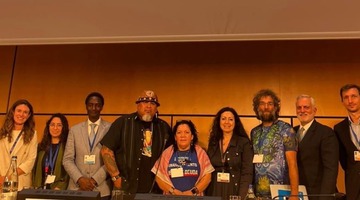Occupational Health and Safety When landfills burn: Yerevan’s toxic summer shows international plastics treaty can make a difference
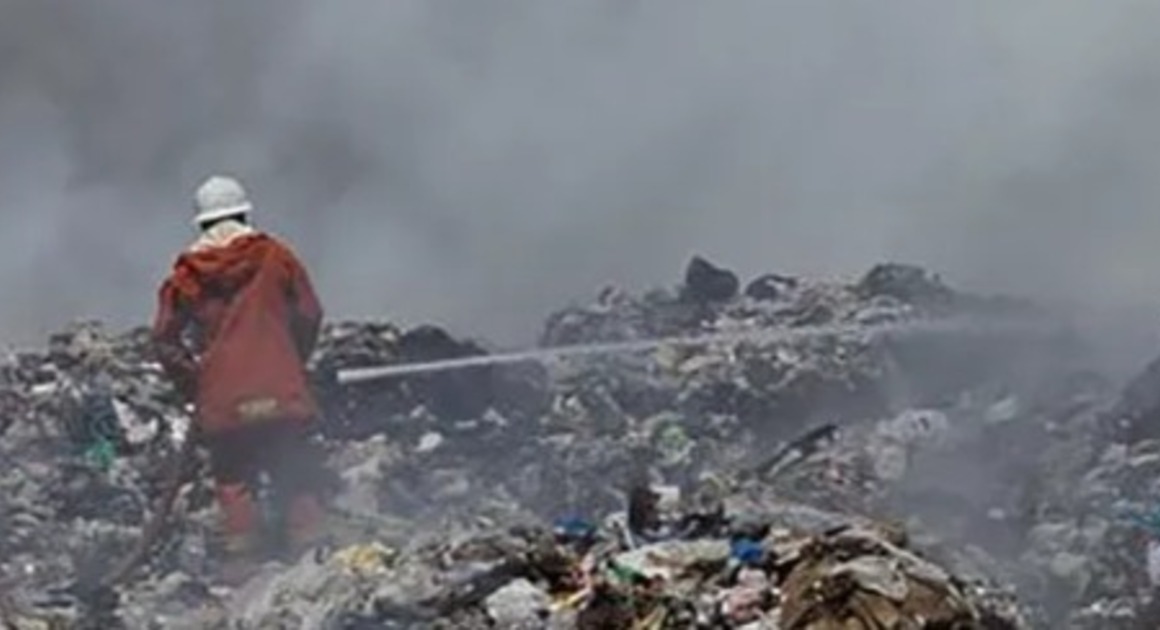
Armenia's burning landfill crisis exposes the urgent need for an international plastics treaty with strong worker protections and Just Transition provisions. Without union involvement and proper public investment in waste management, communities will continue suffering the severe health and economic consequences of plastic pollution.
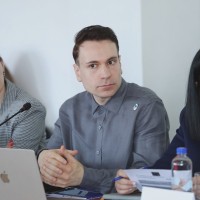
Arsen Igityan
While much of Europe is battling wildfires triggered by record heatwaves, and the UN negotiations for a plastic waste treaty failed once more, in Yerevan, the capital of Armenia with a population of almost one and half million - it is the city’s landfill that has caught fire.
In early August 2025 flames spread across the Nubarashen dumpsite, the capital’s largest open landfill. Firefighter crews struggled for days to contain the smouldering waste as toxic smoke spread across the city.
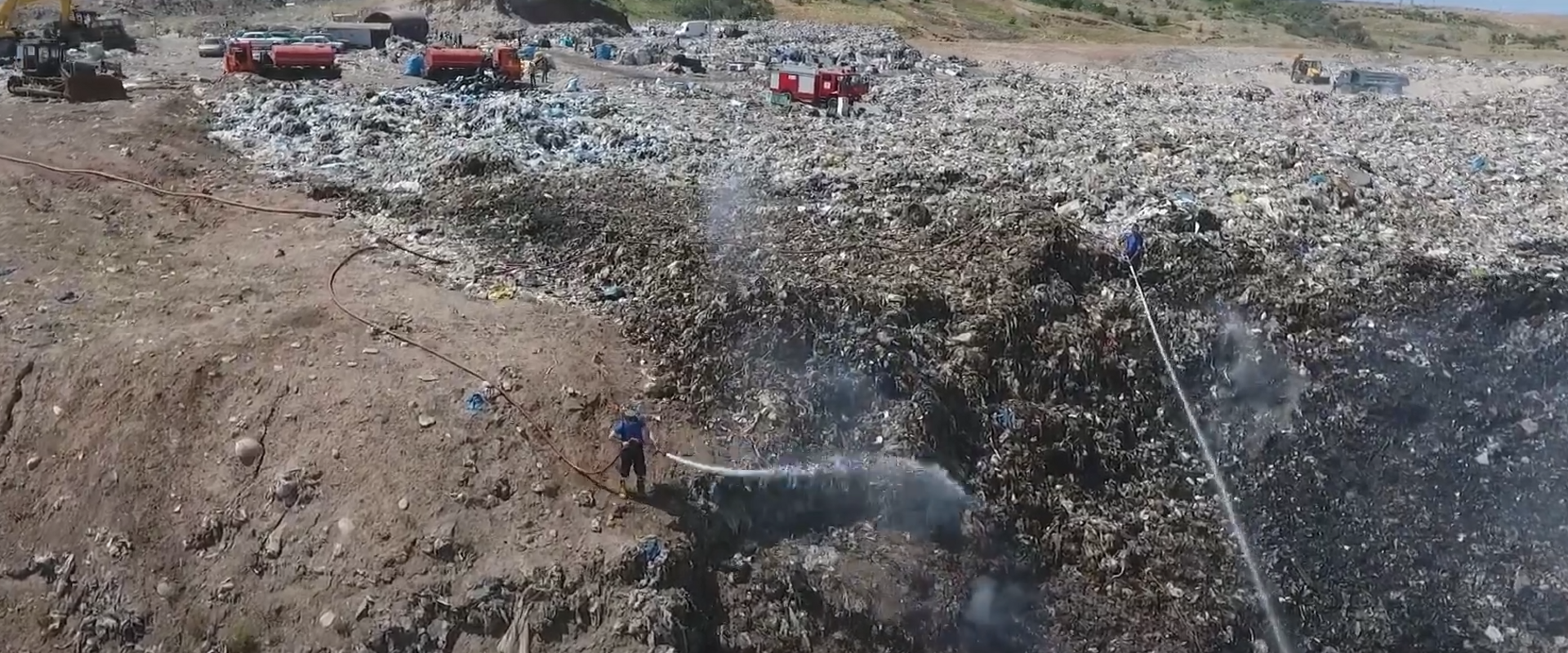
The Nubarashen landfill on fire in August 2025 - Photo: Civilnet
When undisposed waste meets extreme heat and catches fire
Municipal authorities recorded pollutant levels exceeding WHO safety standards 15-20 times, while officials on site described round-the-clock efforts, soil cover operations, and hundreds of tons of water deployed to keep hotspots from reigniting. For many residents, stepping outside or sleeping with open windows mean coughing, headaches, and the sharp chemical smell of burning plastic.
For decades, Armenia has promised to modernise its waste system. Successive governments pledged sorting facilities, recycling plants, or waste-to-energy projects, all with PPPs and funds from international donors. None were delivered. Even the brief experiment (2014-2018) with a private waste operator collapsed after the company cited damages from the landfill itself.
As a result, Yerevan still relies on unsorted open dumping, where over 300,000 tonnes of mixed waste are deposited each year. Every summer, these landfills catch fire. What follows is not just an unpleasant odour, toxic smoke thickening the air and ashes darkening the sky, but a real public health emergency. Burning plastic and hazardous waste release dioxins and furans, polycyclic aromatic hydrocarbons (PAHs), heavy metals and fine particles linked to cancer, cardiovascular and respiratory disease, and long-term ecosystem contamination, not to mention the impact on heat and the massive CO2 emissions adding to climate change. This hellish cycle poisons entire cities, with the greatest risks borne especially by waste workers, firefighters, and communities living nearby.
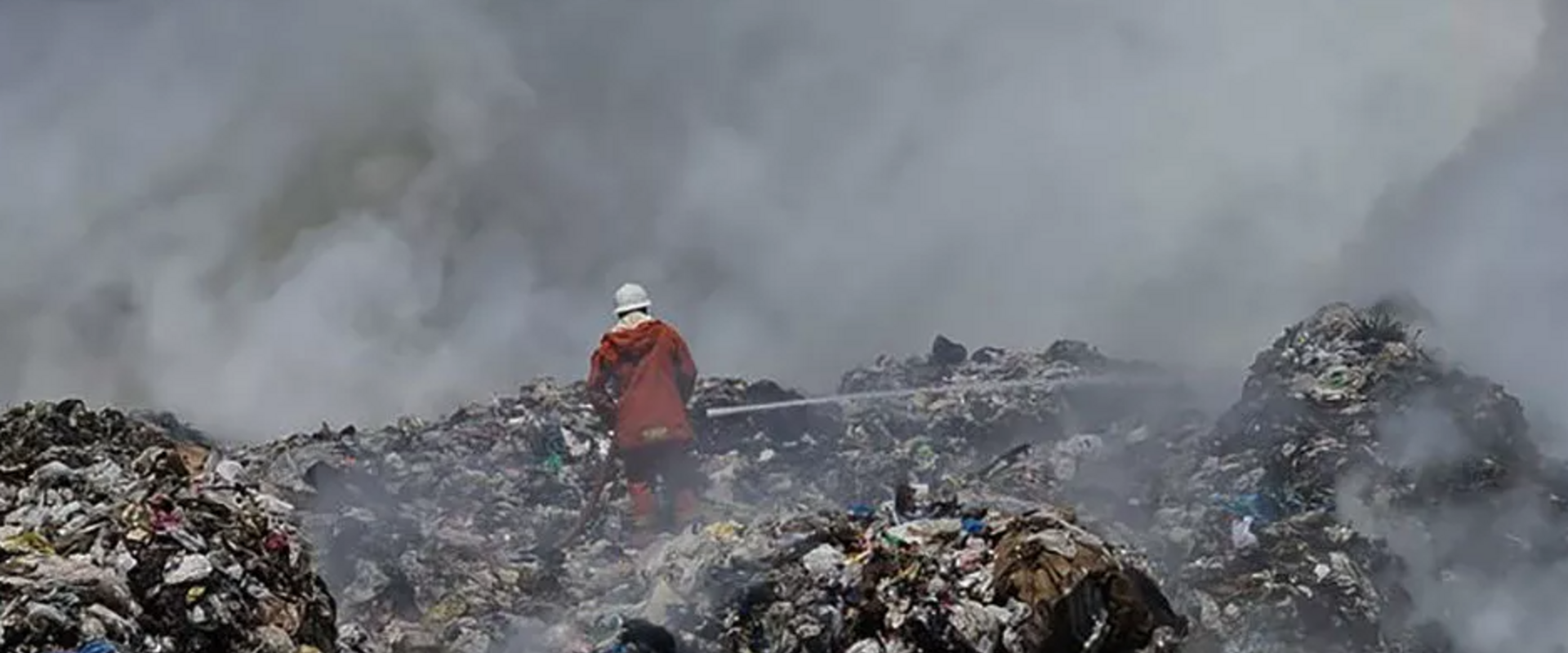
Firefighter battling fire in Yerevan's burning landfill - Photo: Ministry of Internal Affairs of Armenia
Landfill fires are a major threat to public and occupational health
For the USLGPSEA, the PSI’s affiliate representing around 10,000 municipal and government workers—the Nubarashen landfill fire is not only an environmental disaster but also a workers’ issue. Although the union does not directly organise waste workers, many city employees it represents breathe the same toxic air and face health risks without the protection of a universal healthcare system. Surveys among members consistently show that they spend a large share of their income, sometimes more, on healthcare costs.
The Armenian government has yet to deliver a comprehensive healthcare reform, and the current draft proposes a rare insurance model where only workers would contribute. USLGPSEA advocates for a fair and just system, where employers, major businesses, and polluters should participate through progressive taxation and other forms of taxes. So far the union contributed to successful veto of circulating draft. At the same time, through the EU–Armenia Civil Society Platform, where the union holds a seat, USLGPSEA pushes for strong environmental and plastics policies that prioritise people and hold polluters accountable.
“Cycles of privatisation and remunicipalisation in Yerevan have already weakened union organisation in municipal services, especially in waste and sanitation services. As the city now moves to launch a new procurement tender for a waste processing facility, USLGPSEA will closely monitor the process and advocate for transparency, fairness, and protection of workers’ rights while safeguarding the public interest”.
Arsen Igityan, Organizational Affairs and External Communications officer, USLGPSEA
An international treaty on plastic waste pollution is long overdue
At the same time as Yerevan is choking on fumes, governments were meeting in Geneva for the UN plastics treaty negotiations (INC-5.2). Unsurprisingly, talks stalled because a handful of petro-states blocked agreement on production limits and chemical controls.
PSI and ITUC were there, bringing workers’ voices into the negotiations and warning that any credible treaty must include occupational health and safety (OSH) standards for all workers along the plastics chain, binding Just Transition with funding for new, safer, decent jobs, and public investment in waste, water, sanitation, and recycling services.
Unless these measures are enshrined in the text, any future international treaty on plastic waste pollution will fail to protect both people and the planet. Yerevan’s burning landfill shows why this is urgent: plastics are not an abstract hazard—they are already poisoning our cities and sparing no one right here, right now.
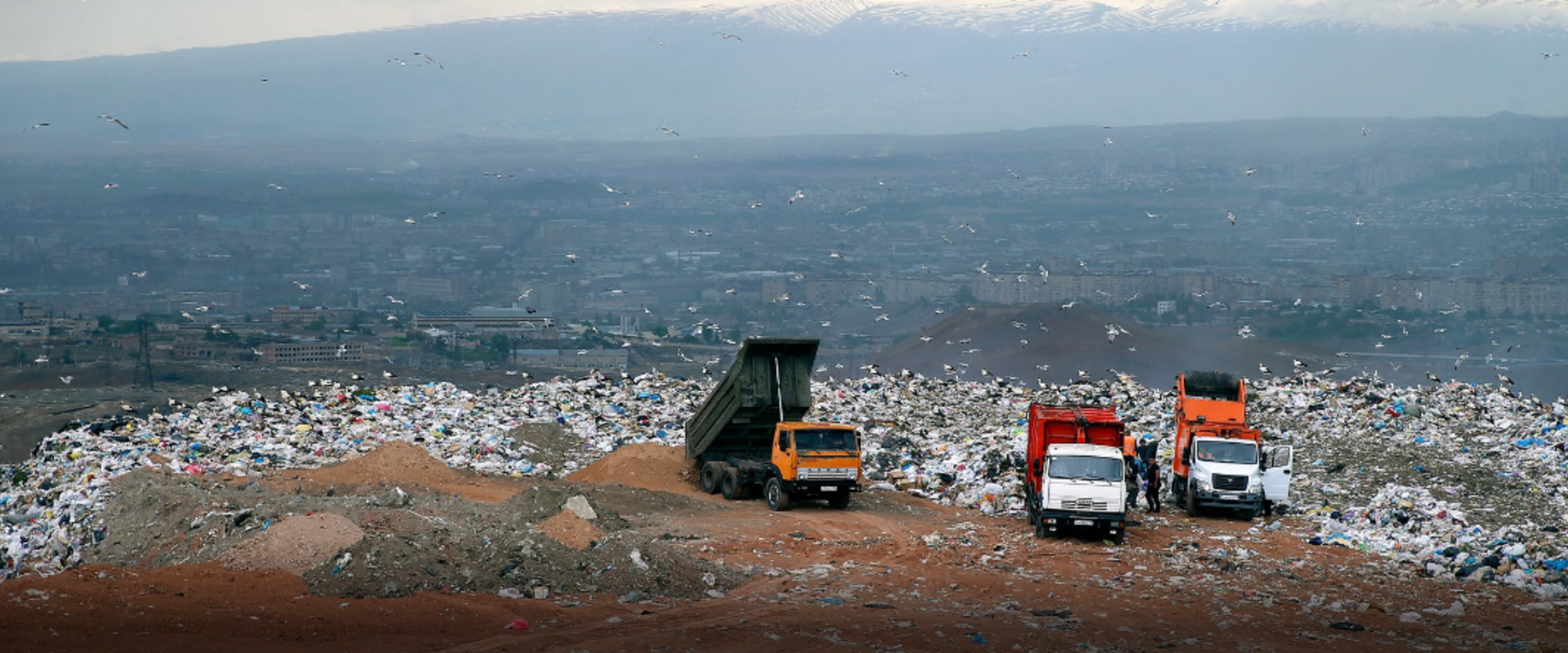
Photo: Yerevan municipality
Any effective solution for the Yerevan landfill requires unions at the table and adequate public investment
For Armenia, the progressive groups and unions have slight hope. The EU–Armenia CEPA agreement (Comprehensive and Enhanced Partnership Agreement) commits the country to close open dumpsites, align with European landfill standards, and develop the 5R system (reduce, reuse, repair, recycle, residuals). If implemented properly, with strong union involvement and financing under the polluter-pays principle—this could finally deliver safe waste systems for Armenia’s workers and communities.
But reforms must be more than promises. They require transparent timelines, public investment, and workers at the negotiating table. In Armenia today, social dialogue is mostly undermined, with unions denied the full enjoyment of the fundamental human and labour rights to bargain collectively. Without workers’ voices, the same cycles of neglect, corruption, and failed projects will repeat over and over again.
The lesson is clear. Whether at the UN plastics treaty or in national reforms, workers must be guaranteed meaningful consultation and negotiation rights. Only then can policies tackle the full costs of plastic—from social, health risks to climate impacts and economic costs — all while ensuring decent, safe jobs in waste management services that should be run in the public interest.
Until then, summers in Yerevan will keep bringing toxic smoke instead of clean air - and workers and residents will continue paying the price for global inaction.
Article contributed by: Arsen Igityan Organizational Affairs and External Communications officer at Union of State, Local Government and Public Service Employees of Armenia (USLGPSEA)
